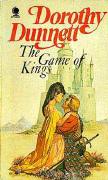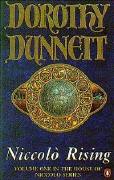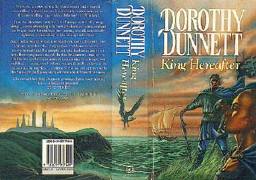|
|
|
|
June 2004
|
|
Contents:
|
|
|
Norris
McWhirter,
author,
publisher,
broadcaster
and
with
his
late
brother
Ross,
co-founder
of the
Guinness
Book
of Records,
has
died
aged
78.
Richard
Lancelyn
Green,
one
of worlds
foremost
authorities
of Sherlock
Holmes,
has
died
aged
50.
He was
found
garrotted
in his
South
Kensington
home
and
the
coroner
concluded
that
suicide
was
the
most
likely
explanation
of his
death.
Mr Lancelyn
Green
was
worried
that
a recently-found
body
of Conan
Doyle
papers
would
be bought
by a
private
collector
from
outside
the
UK.
|
|
|
Cataloguing
repurcussions?
In
a recent High Court
battle over the authenticity
of two vases, Mr. Justice
Jack has found in favour
of the buyer Taylor
Lynne Thompson and against
the seller Christie's.
Ms.
Thompson had claimed
that the vases, for
which she paid £1.9m at
auction
in 1994, were 19th Century
copies and not 18th
originals. The Judge
agreed with Christie's
inasmuch as he said
that it was 70% likely
that the vases were
genuine 18th Century
originals, that dating
of the urns as Louis
XV without qualification
was an opinion which
an auctioneer of their
standing could reasonably
reach and that there
was no breach of duty
on their part in that
regard.
Mr.
Jack also said, however,
that Christie's fell
short in their catalogue
description and had
given 'an incomplete
picture' in that they
failed to point out
the difficulty in dating
such items because of
the later copies; in
attributing the commission
of the design
of the urns for a particular person
of the period without
any evidence they provided
a feeling of confidence
and certainty which was not
justified; and that
the auction house had
a special duty of care
towards the buyer because
they were aware that
the buyer relied entirely
on their expertise.
|
|
 Photograph
by Alison Dunnett © Photograph
by Alison Dunnett ©
Dorothy Dunnett - A Personal Perspective
by An-Eye-for-Books
 It was 1992 and I was searching the shelves in my local UBS, chatting with the owner as one does. Nothing leapt into my hands crying “Read me!” so I asked for a recommendation. “Many people like Dorothy Dunnett”, he said, and handed me a slightly tatty paperback with a really naff historical-romance cover. Now, I love historical fiction but not with ’70’s bodice-ripper cover art. Dubiously I took it home and managed to get through one chapter. Set in 16th Century Scotland, the language was superb but it required work and attention to read, and frankly, the hero didn’t appeal to me at all. He was an arrogant poser who disrupted Edinburgh, set fire to his mother’s house and stabbed her best friend in the arm in the first 50 pages: a blond rapier who quoted poetry in 5 languages and was nasty to everyone. I took it back, and with the trade credit bought something eminently forgettable. It was 1992 and I was searching the shelves in my local UBS, chatting with the owner as one does. Nothing leapt into my hands crying “Read me!” so I asked for a recommendation. “Many people like Dorothy Dunnett”, he said, and handed me a slightly tatty paperback with a really naff historical-romance cover. Now, I love historical fiction but not with ’70’s bodice-ripper cover art. Dubiously I took it home and managed to get through one chapter. Set in 16th Century Scotland, the language was superb but it required work and attention to read, and frankly, the hero didn’t appeal to me at all. He was an arrogant poser who disrupted Edinburgh, set fire to his mother’s house and stabbed her best friend in the arm in the first 50 pages: a blond rapier who quoted poetry in 5 languages and was nasty to everyone. I took it back, and with the trade credit bought something eminently forgettable.
 Two years later, a bit more money in my pocket, I was in the local new-book bookshop on the search again. As I scanned the “D’s” the cover art of one paperback simply shouted class - a rich royal purple with a small, intricately drawn illustration. I bought it and read it through. It was interesting - an unusual historical novel set in Bruges in the 15th century about a deeply ambiguous 16 year old dyeshop apprentice with “semaphore dimples and caterpillar lips”. The second in the series took me to Trebizond at the end of the Holy Roman Empire and I began to notice conundrums and twists which sent me back, time and again, to the first book. But I wasn’t hooked, merely interested as I read the third book, Cyprus at the court of King James. And then the 4th book - SCALES OF GOLD. Oh my! What a book! Africa 50 years after its “discovery”, the Silent Trade, Timbuktu the City of Learning. Interested didn’t come close. Obsessed. By now I had caught up with the author and had to wait 2 years for the next in the series to be published. Two years later, a bit more money in my pocket, I was in the local new-book bookshop on the search again. As I scanned the “D’s” the cover art of one paperback simply shouted class - a rich royal purple with a small, intricately drawn illustration. I bought it and read it through. It was interesting - an unusual historical novel set in Bruges in the 15th century about a deeply ambiguous 16 year old dyeshop apprentice with “semaphore dimples and caterpillar lips”. The second in the series took me to Trebizond at the end of the Holy Roman Empire and I began to notice conundrums and twists which sent me back, time and again, to the first book. But I wasn’t hooked, merely interested as I read the third book, Cyprus at the court of King James. And then the 4th book - SCALES OF GOLD. Oh my! What a book! Africa 50 years after its “discovery”, the Silent Trade, Timbuktu the City of Learning. Interested didn’t come close. Obsessed. By now I had caught up with the author and had to wait 2 years for the next in the series to be published.
During the interim I bored everyone to the point of death about this extraordinary writer: her pellucid prose, her intricate characters, the multitude of real historical figures and meticulous research…the puzzles… the settings. No-one I met had even heard of her. My English teacher colleagues at the secondary schools I taught in, all gave back my loaners saying “too much work”. I was desperate to talk to someone, anyone, who had read Dorothy Dunnett. The solution to my problem arrived in 1997 with my first logon on my first computer. Firing up Yahoo the first words I typed were “Dorothy Dunnett” which brought up James Thins bookshop in Scotland and quickly lead to email lists.
 Lady Dunnett’s books have had a surprisingly profound effect on people’s lives. Inspired by her writing many of her readers have become English teachers, historians and writers. Her descriptions are so rich, so full of life that you read with your senses as much as your eyes, hear the sounds and smell the scents she describes. Unlike many writers of historical fiction Dorothy’s research was meticulous. She spent 10 years researching her stand alone novel, KING HEREAFTER and acquired a reference library of over 10,000 books most of which went to Edinburgh University after her death still festooned with annotated book-marks and sticky notes. In researching one of the major characters of the House Nicholas series, Anselm Adornes, she discovered hitherto unknown data about the man who was hanged at Lauder Bridge in such infamous company. Lady Dunnett’s books have had a surprisingly profound effect on people’s lives. Inspired by her writing many of her readers have become English teachers, historians and writers. Her descriptions are so rich, so full of life that you read with your senses as much as your eyes, hear the sounds and smell the scents she describes. Unlike many writers of historical fiction Dorothy’s research was meticulous. She spent 10 years researching her stand alone novel, KING HEREAFTER and acquired a reference library of over 10,000 books most of which went to Edinburgh University after her death still festooned with annotated book-marks and sticky notes. In researching one of the major characters of the House Nicholas series, Anselm Adornes, she discovered hitherto unknown data about the man who was hanged at Lauder Bridge in such infamous company.
DD’s books are not easy reads, however. They require attention and thought. They are filled with false trails and really need to be read more than once. When I met Dorothy for the last time in Philadelphia I told her that I had still to read GEMINI because I didn’t want the journey to end. “Read it,” she said, “And then you can go back to the first book and read them again, this time looking for the clues.” She died in 2001. And I still haven’t read GEMINI.
“She made the whole world to hang in the air..” The Ringed Castle
A selection of links about Dorothy Dunnett on the WWW:
|
|
Iris
Murdock archive secured
by Kingston University
Kingston University
has recently secured
two archives relating
to the late Iris
Murdoch, a notable achievement
which ensures they remain
in Britian, rather than
depart to a cash-rich
American universities.
The archives comprise
Murdoch’s working library
from her study at her
Oxford home, and the
collection of Peter
Conradi, Iris Murdoch’s
official biographer
and Murdoch scholar.
The Oxford library comprises
over 1000 books, which
are divided into Philosophy,
Psychology, Theology,
Poetry, Literature,
History, Art, and Travel.
The most significant
factor of this collection
is that Murdoch has
annotated the texts
on rear endpapers which
often extend to a number
of closely written pages;
there are also detailed
notes written in the
margins of many of the
books.
Peter Conradi’s
collection comprises
correspondence (including
a series of holograph
letters), typescripts
(including an unpublished
book on Heidegger),
interviews, transcripts
and cassettes. Once
they have been catalogued
by Kingston University,
scholars from all over
the world will be able
to access these important
documents for research
and teaching purposes.
The acquisition of
these important archives
will enable the University
to open a Centre for
Iris Murdoch Studies
at Kingston University
in September 2004. The
launch of the Centre
will coincide with the
second International
Conference on Iris Murdoch
which will be held at
the University on September
17th and 18th 2004.
The conference has already
attracted a number of
important speakers of
international acclaim.
The Centre will also
offer regulated access
to the public.
|
|
Marguerite
Patten interview
In an exclusive interview, Marguerite Patten, the doyenne of British Cookery and author of more than 165 cookery books, talks with Ibooknet Member Bruce Tober of Books@Star-Dot-Star about the 3 things that matter most in her life.
Read
here........
|
|
Hay
Festival
The
Seventeenth Hay festival
is currently in progress.
Sponsored by The Guardian,
Channel 4, Orange and
many others it opened
on 28th May it will
continue until 6th June
offering books, food, comedy, music, gardens, art, argument, conversation and literature
in a carnival atmosphere
to an expected 80,000
visitors.
This
year sees the inaugural
presentation of the
Hay Prize (to a writer,
elected by the writers
attending) at the Gala
Banquet (tickets £150.00)
and the Bollinger Everyman Wodehouse Prize for
comic fiction 'in the
spirit of the master'.
There is also the launch
of the Hay Festival
Press with the first
two of a series of books,
'Bottle' by Margaret
Atwood and 'A Night off for Prudente de Moraes'
by Louis de Bernieres,
each with a print run
of 1000 with 100 of
those being numberd
and signed.
|
|
Recent
auction results - Conan
Doyle archive, Dylan
Thomas and James Joyce
letters
An
archive of Conan Doyle
material, lost for the
last 40 years, was sold
by Christie's at their
London auction rooms
on May 19th. There had
been pleas to Christie's
delay the sale from the
British Library and
Toronto Public Library because
some of the items may
belong to them, left
under legacies from
Jean Conan Doyle and
Anna Conan Doyle respectively,
and in the House of
Commons to try and keep
the collection together
and in the UK.
There were some 3000
separate items from
personal notes and letters
to three notebooks which
contain the draft sketch for A Study in
Scarlet revealing the
original proposed title
of A Tangled Skein which
had been crossed through.
The
existence of the papers
had been known about
since the publication
of a list in John Dickson
Carr's authorised biography
of Conan Doyle in 1949
but their whereabouts
had been a mystery until
rediscovered at a London
law firm last year.
The
total realised was just
short of £1 million
at £948,545 and about
a quarter of the lots
failed to reach their
reserve. The archive
was split into some
130 lots, keeping related
items together, the
highest selling price
being £139,650 for three
notebooks containing
ideas for his stories,
written when a young
doctor in Swansea. The identity
of the buyers and destination
of the lots is not yet
known.
*
* *
The earliest surviving
love letter written
by Dylan Thomas to his
future wife Caitlin
has been sold by Sotheby's,
New York for $22,800
(more than £12,000). It was amongst
a collection of
his work that sold for
more than £60,000 in
total.
*
* *
The first letter
written by James Joyce
in 1905 offering Heinemann
his debut
work 'Dubliners' for publication recently sold
for £32,265 by Christie's
in London. Heinemann
turned down the offer
and the book was eventually
published by Grant Richards
in 1914.
|
|
Next Month: The
feature for July will be by Fantastic Literature
|
|
|
|

